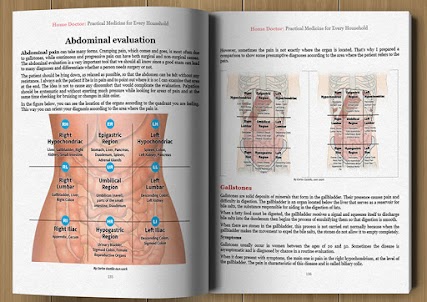A toothache can range from being a mild discomfort to causing throbbing headaches, missing meals, and missing sleep. The best way to deal with it would be a visit to your dentist, especially when symptoms persist for more than a day or two. Until then, here are some proven home remedies you can try to alleviate the pain.
Caution: Consult your doctor before use if you are pregnant, breastfeeding, or have a certain medical condition that may be affected by the use of herbs and spices.
Note: Some of the links here are affiliate links. There’s NO additional cost for you, but it does help our team to earn some coffee money to help write more health tips for you.
Cold Compress
A cold compress can numb the pain by constricting blood vessels which slow down the blood circulation of the affected area. This is especially helpful for toothaches caused by trauma. Cold treatment not only numbs the area, but also reduces bleeding, swelling, and inflammation.
There are instant cold packs available in the market or you can simply wrap an ice pack or bag of frozen vegetables with a towel and apply it to the side of your cheek for 20 minutes at a time. Repeat every few hours if needed. You can also try holding ice water in your mouth for as long as you can, making sure not to chew on the ice as it could break your teeth.
Salt Water Rinse
Salt water rinses can help soothe discomfort and reduce inflammation. The solution can prevent infection by drawing bacteria to the surface which is then disposed of when you spit out. The swishing movement can also dislodge any possible substances stuck in between your teeth.
Caution: This practice is not advised for children aged 6 and below or other people who have difficulty gargling.
Garlic Paste
Garlic has been a part of many cultures and traditions when it comes to its medicinal use. It was even mentioned in the Avesta, a collection of religious writings of Zoroastrianism that was derived from a master copy that dates as early as 224-651 CE.
Allicin is a defense molecule found in freshly cut or crushed garlic which gives it its antibacterial and antimicrobial properties. You can carefully chew on a peeled clove with the affected tooth and keep it on the tooth for some time. Another way is to make a paste by crushing garlic with a bit of salt and applying it to the affected tooth. Make sure not to push it down so deep that it gets stuck in between the teeth instead.
Peppermint Tea Bag
Peppermint was originally cultivated by the ancient Egyptians, but is now grown worldwide. It has strong antioxidant and antibacterial properties that are even comparable to commercial antibiotics. Studies also show that peppermint is effective against oral pathogens and its mild numbing properties and the cooling effect of menthol can help soothe toothaches.
Before applying, make sure to cool down the used tea bag so that it is still warm but not hot. It can also be applied cold by first freezing the teabag. However, it is best to know that tea can stain teeth so try not to use this method often.
Thyme Essential Oil
Thyme has been found to have the highest level of antioxidants among herbs which helps it treat toothaches. It is a natural food preservative as it has very powerful antibacterial properties against foodborne diseases even in low concentrations. It also helps fight bacteria that causes tooth decay.
You can add one drop of thyme essential oil into a glass of water and use it as a mouthwash. Another way would be to dilute thyme essential oil with water, add a few drops to a cotton ball, and apply it to the affected area.
Clove Oil
Cloves act as a natural pain reliever as it contains eugenol which is a natural anesthetic. It not only numbs the pain, but also reduces inflammation. Spices are found to have high polyphenol content which are plant compounds that are high in antioxidants and health benefits. In two studies of 100 rich dietary sources of polyphenols as well as 26 spices with main phenolic compounds, cloves ranked high in both.
There are several ways to use clove. You can gently chew on dried cloves to release its oil and keep it against the affected tooth for 30 minutes. You can also use it as a mouthwash by adding a drop of clove oil to a glass of water. Another way is to soak a cotton ball with clove oil and apply it to the affected area.
Bottom Line
The above mentioned remedies may provide temporary relief, but should not be treated as a replacement for professional dental care. Many toothaches do call for medical attention especially if the toothache is severe, has lasted more than one or two days, or if you have any of the following symptoms:
- Fever
- Difficulty breathing or swallowing
- Pus or foul-tasting discharge
- Abnormally red gums
- Pain when you bite
- Swelling
Your Must-Have Guide to Ailments, Diagnosis & Unexpectedly Effective Home Remedies
Authored by 2 real doctors and a survivalist prepper, The Home Doctor, will enable you to (1) find a common “antibiotics” plant, (2) diagnose the type of abdominal pain you have, and (3) do so much more.







